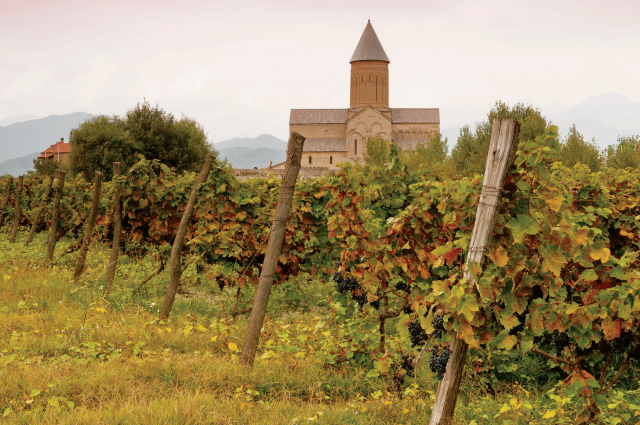Georgia – Cradle of Wine
Georgia is the cradle of wine and wine making began in the country at least 5,000 years ago. The country in the South Caucasus has an enormous variety in grape species. There are about 500 different kinds, most of them go way back and only grow in Georgia.
There is no argument among specialists that the oldest remains of wine making were found in Georgia.
British newspaper Mirror published an article last year about the discovery in Georgia that proves Georgia is the cradle of wine.
The Mirror says traces of grape pollen from the world's first vineyard were discovered inside an animal-shaped ceramic jar used in ritual ceremonies.
The article also mentions that the jag was dug up at an archaeological site called Aradetis Orgora – 100km west of Georgia’s capital Tbilisi and the pottery dates to around 3,000BC.
The piece also notes the first evidence of domesticated grapes in the form of pips were also unearthed in the southwest of Georgia and date back 6,000 years.
"It means Georgia really was the cradle of viticulture from where the technology spread to the so-called 'Fertile Crescent' of Mesopotamia and the Eastern Mediterranean,” the article says.
Moreover, according to the newspaper, there was found a second similar vessel and a Kura-Araxes jar on the burnt floor of a large rectangular area with rounded corners - arguably a sort of shrine used for religious activities.
“Scientists used a technique called radiometric (C14) analyses which dates specimens by determining proportions of chemicals to show they go back to 3000-2900 BC,” the article reads.
Dr Eliso Kvavadze said that the animals on both Georgian vessels could have represented gods and they are a unique discovery in the region.
"The context of discovery suggests wine was drawn from the jar and offered to the gods or commonly consumed by the participants to the ceremony," Professor Elena Rova, of the Ca' Foscari University of Venice, stated after examining the vessels.
The researchers said it's a key-finding for Georgia, where wine culture still continues in the course of traditional banquets called the Supra.
By Thea Morrison











